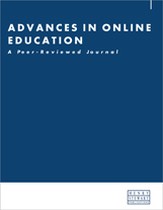Inclusive excellence online: Pandemic lessons learned supporting traditionally underserved students
Abstract
When the COVID-19 pandemic hit and all higher education pivoted to online learning, the University of Maryland, Baltimore County (UMBC) created ‘Finish Line’, a programme designed to help former students with some college, but no degree to complete their studies, often several years after they had left the institution. More than 200 students have done so to date, which was a surprising pandemic silver lining for an institution with fewer than 5 per cent of all courses delivered online before 2020. But was Finish Line just a temporary strategic initiative to get through a global health crisis? Or could it also be a proof of concept for how to meet and support ‘non-traditional’ adult learners where they are — and want to go? In this reflective case study, we offer candid lessons learned to go beyond the logistics of an enrolment management strategy of ‘re-recruiting’ former students through the affordances of online education to reassessing and redefining our ‘inclusive excellence’ mission in a post-pandemic, often digital-first world.
The full article is available to subscribers to this journal (subscription is free).
Author's Biography
Ken Baron is Assistant Vice Provost for Academic Advising and Student Success at the University of Maryland, Baltimore County (UMBC). In his 17th year of service at UMBC, he leads and manages academic advising practices as an administrator and a practitioner. Before coming to UMBC, Ken held diverse leadership positions at various institutions, including Emory University, The College of New Jersey, The University of Tennessee, Knoxville and the American InterContinental University in London (now Regents University). Ken received his Bachelor’s and Master’s degrees from the University of Maryland, College Park, USA. He received his PhD from the Department of Educational Studies at the University of Surrey, Guildford, UK, where a Rotary Ambassadorial Scholarship supported his graduate study and research on the Nature of American Academic Advising in the 21st Century. Ken also holds four professional counselling certifications sponsored by the National Board for Certified Counselors (NBCC) and the Center for Credentialing and Education (CCE).
John Fritz is Associate Vice President of Instructional Technology at the University of Maryland, Baltimore County (UMBC), where he is responsible for leading UMBC’s strategic efforts in teaching, learning and technology. As a learning analytics researcher and practitioner, John focuses on leveraging student use of digital technologies as a plausible proxy for engagement that can nudge responsibility for learning. Doing so also helps identify, support and scale effective pedagogical practices that can help. As such, John attempts to find, show and tell stories in data that can inspire the head and heart of students and faculty for change. John earned his PhD in language, literacy and culture from UMBC in 2016. His dissertation focused on using analytics to nudge student responsibility for learning and identify effective course designs that help.
Yvette Mozie-Ross is Vice Provost for Enrollment Management and Planning at the University of Maryland, Baltimore County (UMBC). As Vice Provost, she provides oversight and strategic planning for the areas of undergraduate admissions and orientation, financial aid and scholarships, academic and pre-professional advising, records and registration and the student administration project (student information system). Yvette has served on various national and state-wide committees and workgroups including the College Board’s Commission for Transfer Policy and Practice and the Maryland Higher Education Commission’s State Plan Writing Group on Access, Affordability, and Completion. She has served on the university’s Strategic Planning Steering Committee and is currently serving as the governing board president for the Baltimore Collegetown Network, a consortium of 13 colleges in Baltimore, Maryland. Additionally, she serves as a governing board member for the Samuel Ready Scholarship which provides academically promising girls with financial need access to Baltimore independent secondary school education. Yvette frequently lends her expertise, both nationally and internationally, in data analytics and leveraging analytics for institutional transformation in the area of student success. Yvette earned her Bachelor’s degree from UMBC in 1988, her Master’s degree from the University of Maryland University College in 1994, and her PhD in education policy and leadership from the University of Maryland, College Park in 2011. Her dissertation research examined the academic and background characteristics of high school graduates who identified teachers as influential in their choice of college.
Citation
Baron, Ken, Fritz, John and Mozie-Ross, Yvette (2023, September 1). Inclusive excellence online: Pandemic lessons learned supporting traditionally underserved students. In the Advances in Online Education: A Peer-Reviewed Journal, Volume 2, Issue 1. https://doi.org/10.69554/IQQN3936.Publications LLP
